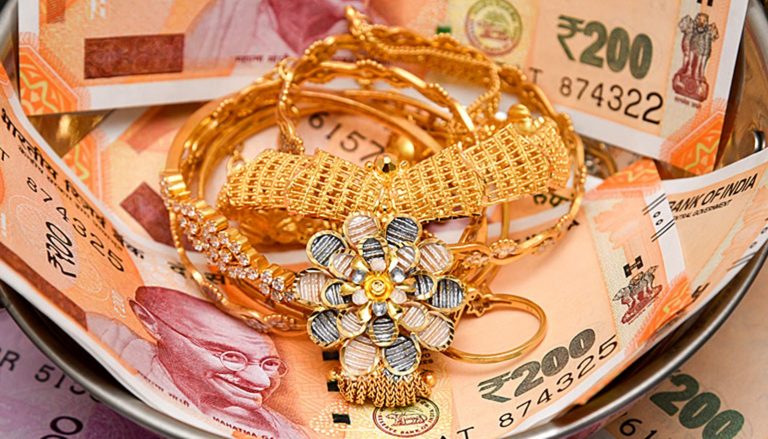
Compare gold loan interest rates from top providers with our comprehensive guide. Get the best rates, eligibility criteria, processing fees, and repayment terms
The interest rates on gold loan are relatively lower than other types of loans and range between 7.35% to 29% p.a. Banks and other financial institutions in India offer gold loans, the loan amount for which ranges from Rs.1500 to Rs.1.5 crore. The repayment tenure of these gold loans ranges between 7 days to 20 years.
Gold Loan Interest Rate Comparison in All Banks:
[table id=16 /]
Gold loans are usually taken for shorter periods to fulfill immediate upcoming requirements like paying for a child’s education, planning a wedding, taking care of a medical emergency, etc.
Top 5 Benefits of Availing a Gold Loan:
- Loans can be availed at low interest rates since collateral is being provided.
- Apart from gold jewellery, no other security or collateral will need to be provided.
- The funds can be used for various purposes unlike a car loan or home loan or as you want to use.
- Minimal documents will need to be submitted to apply.
- Your credit history need not be good to avail the gold loan.
4 Main Features of a Gold Loan:
- The gold loan may be provided within ten minutes.
- The documentation process is simple and most lenders will only request for address proof and identity proof for gold loan.
- You can pay only the interest part initially and pay the principal amount when the loan matures.
- Your credit history need not be good to opt for a gold loan.
Top 3 Factors which Affects Gold Loan Interest Rates:
1- Current price of gold in the market: If the price of gold is high in the market, the value of the gold ornaments or coins being pledged by you will also be high. Lenders will offer you a lower interest rate in such cases since the risk associated is low and if ,for some reason, you are unable to make the equated monthly instalments (EMIs), the lender can easily recover the outstanding amount by selling/auctioning the gold ornaments.
2- Inflation rate: If the rate of inflation is high, the value of currency depreciates and hence, people tend to accumulate more gold. Gold acts as a hedge against inflationary conditions especially when they persist for a longer period. This, in turn, pushes the prices of gold higher and in such time if you wish to avail a gold loan, you may get lower interest rates from lenders.
3- Relationship with the bank: Most lenders offers gold loans to their existing customers, though, in some cases, individuals who have no history with the bank can also avail gold loans. However, existing customers of banks/lending institutions are typically in a better position to negotiate for a lower interest rate.
Gold Loan Interest Rates – FAQs
Q. Can anyone avail the gold loan?
Ans. Gold loan can be availed by anyone who is over 18 years of age and should own gold ornaments or any types of gold items. Applicants must meet the bank’s other internal eligibility criteria as well.
Q. How long does it take to process Gold Loan application?
Ans. Gold loan is usually disbursed on the same day by the bank. However, the bank may take some time to appraise your gold articles, this may cause some delayed. Once your gold articles have been appraised and verified, you can expect quick disbursal.
Q. How can I repay the gold loan amount?
Ans. You can repay the loan amount via cash, cheque, Demand Draft (DD) or through online fund transfer. You may also use the bank’s mobile app to pay the loan amount.
Q. Is it possible to repay my gold loan amount partially?
Ans. Yes, some gold loan schemes allow you to make a partial payment. However, your gold ornaments will be released only when the entire outstanding amount has been repaid.
Q. Can I prepay or foreclose my gold loan?
Ans. Yes, you may foreclosure the gold loan account. However, you might be charged foreclosure charges.
Q. How much loan amount can I expect for my gold articles?
Ans. The gold loan amount is dependent on various factors which include current gold rate, quantity & purity of gold in the ornaments and relationship with the bank.